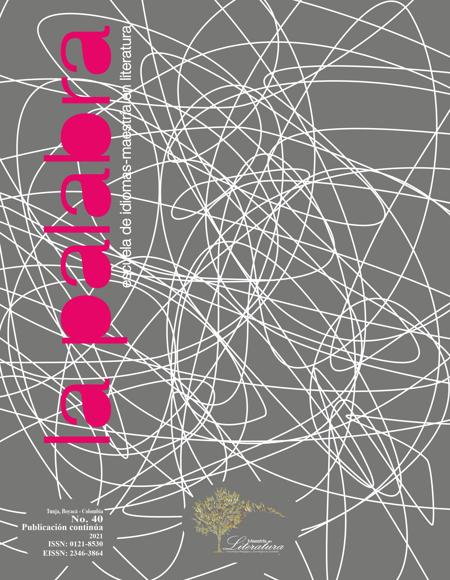Fear in the fantastic narrative IT: a literary and cinematographic analysis

Abstract
The present study aims to analyze the manifestation of fear in the fantastic narrative It, in both literature and cinema. Supernatural themes are a constant in fictional prose, providing an increase in studies on the relationship between fear and fantastic narratives. As theoretical support, we build on the literary scholarship of Yi-Fu Tuan (2005), Stephen King (2013), David Roas (2014), Marcel Martin (2003) and Jacques Aumont (2013). As for methodology, a content analysis model is adopted in a bibliographic, exploratory and qualitative approach. It, A novel, as a fantastic narrative, destabilizes our sources of security by questioning the validity of the systems and beliefs created by and imposed upon on humanity. The results illustrate how the fantastic genre has been characterized as presenting us phenomena and situations that signal a transgression of our reality. This rupture with the real is, therefore, a fundamen- tal effect of fantastic narratives which have also been explored in cinematic narratives.
Keywords
Fear; Literature; Cinema; Fantastic.
Author Biography
Naiara Sales Araújo
Doutora em Literatura Comparada; Professora da Universidade Federal do MAranhão
José Antônio Moraes Costa
Mestre em Letras Pela Universidade Federal do Maranhão; Professor Lingua e Literatura Inglêsa; Professor de Língua e Literatura Portuguesa;
References
- Alazraki, Jaime. “Los últimos cuentos de Julio Cortázar”. Revista Iberoamericana, vol. 51, núm. 130-131, 1985, págs. 21-46. www.revista iberoamericana.pitt.edu/ojs/index. php/Iberoamericana/article/view/3990/4158 DOI: https://doi.org/10.5195/REVIBEROAMER.1985.3990
- Aumont, Jacques. A estética do filme. Campinas: Papirus, 2013.
- Bachelard, Gaston. A poética do espaço. Trad. Carlos Alberto Madeiros. São Paulo, Martins Fontes, 1993.
- Bauman, Zygmunt. Medo Líquido. Rio de Janeiro, Jorge Zahar Ed., 2008.
- Burns, Edward Mcnall. História da civilização ocidental: do homem das cavernas até a bom- ba atômica. São Paulo, Editora Globo, 1970.
- Calvino, Ítalo, ed. Fantastic tales: visionary and everyday. New York, Penguin Random House, 1997.
- It: part 1. Dir. Andy Muschietti. Roteiro: Cary Fukunaga e outros. Intérpretes: Bill Skars- gård, Jaeden Lieberher, Finn Wolfhard e outros. New Line Cinema, 2017. Film. 1 DVD. (134 min.), son., color.
- King, Stephen. Dança macabra. Rio de Janeiro, Objetiva, 2013.
- ———. It: A novel. 1986. New York, Scribner, 2014.
- Lothe, Jakob. Narrative into fiction and film: an introduction. Oxford, Oxford University Press, 2000.
- Martin, Marcel. A linguagem cinematográfica. São Paulo, Brasiliense, 2003.
- Ricoeur, Paul. Memory, history, forgetting. Trads. Kathleen Blamey y David Pellauer. Chica- go, University of Chicago Press, 2004. DOI: https://doi.org/10.7208/chicago/9780226713465.001.0001
- Roas, David. A ameaça do fantástico: Aproximações teóricas. Trad. Julián Fuks. São Paulo, Editora Unesp, 2014.
- Rodrigues, Selma Calasans. O fantástico. São Paulo, Ática, 1988.
- Rogak, Lisa. Stephen King. A biografia coração assombrado. Rio de Janeiro, Darkside Books, 2017.
- Silva, Lygia Maria Pereira da. Violência doméstica contra a criança e adolescente. Recife, Edupe, 2002.
- Todorov, Tzvetan. The Fantastic: A Structural Approach to a Literary Genre. Trad. Richard Howard. Cleveland, The Press of Case Western Reserve University, 1973.
- Tuan, Yi-Fu. Landscapes of fear. Oxford, Basil Blackwell Publisher, 2005.
